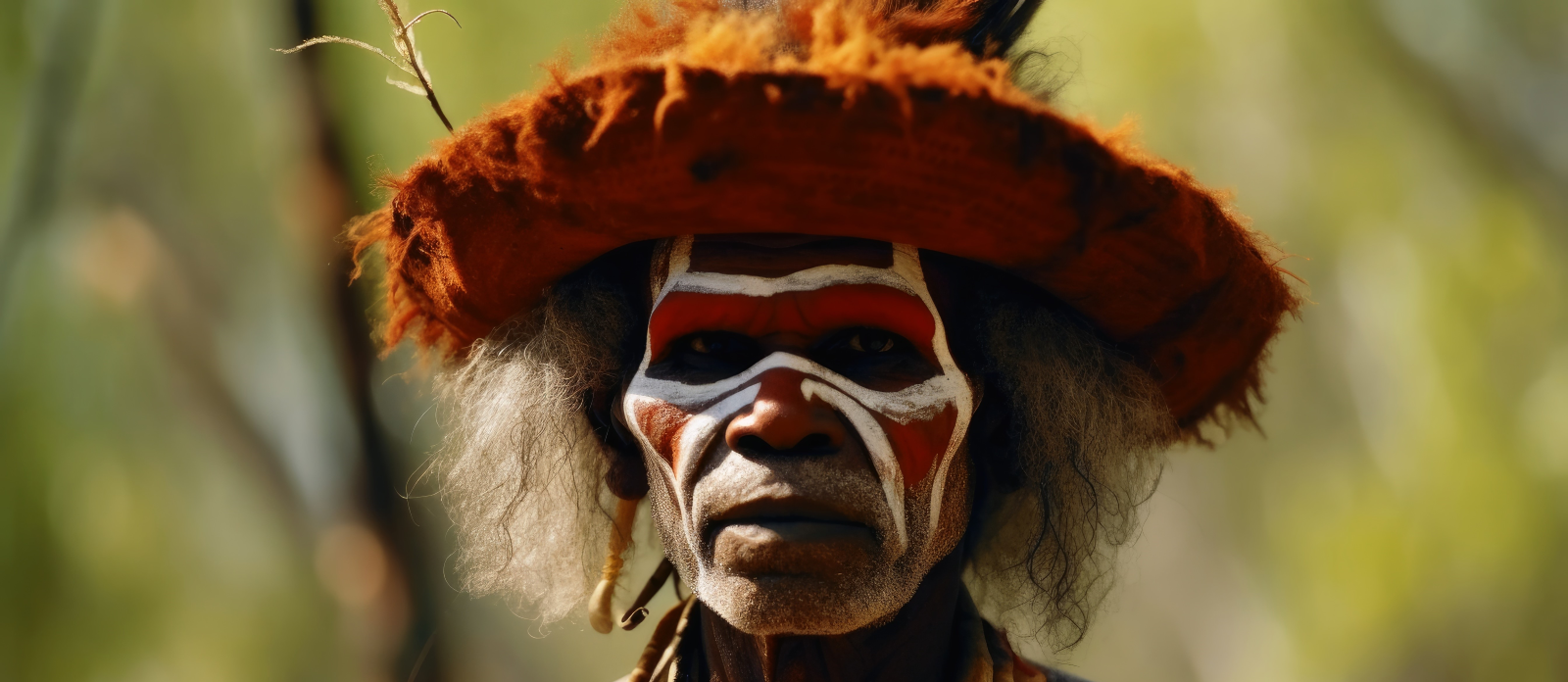The phrase ‘Care for Country, Country Will Care for You’ reflects the deep love and connection Aboriginal people have with the land. It is a spiritual, cultural, and practical relationship between humans and the Earth. For Aboriginal Australians, ‘Country’ is a living entity that sustains life, offers identity, and provides spiritual nourishment. By caring for Country, people nurture the land, which in turn supports their well-being and cultural survival.
Aboriginal practices show a unique understanding of sustainability, passed down through thousands of years. As climate challenges grow, these principles offer valuable lessons for balancing human activity with the natural world. Understanding this relationship helps us appreciate the wisdom behind Aboriginal land management and its role in protecting our planet’s future.
Origins of ‘Caring for Country’
The concept of ‘Caring for Country’ has roots in Aboriginal traditions that span tens of thousands of years. It refers to the sustainable practices Aboriginal people used to manage the land, waterways, and ecosystems. These practices weren’t merely practical—they were spiritual obligations embedded in Dreaming stories and cultural laws.
Country isn’t just land; it’s a complex, interconnected system that includes the people, spirits, animals, and plants within it. Aboriginal custodians see themselves as caretakers, maintaining balance through practices like controlled burning, resource sharing, and ceremonial activities. This interdependence highlights a worldview where land and people are intrinsically linked.
You can learn more about the historical context of Aboriginal land management in this resource by AIATSIS.
The Reciprocal Relationship Between People and Country
In Aboriginal culture, ‘Country’ is far more than just a physical place—it encompasses spirituality, identity, and belonging. Caring for Country involves nurturing this connection to maintain balance and health for both the land and its people. When the land thrives, it supports physical and emotional well-being, ensuring clean water, fresh food, and a sustainable habitat for future generations.
This relationship is deeply reciprocal. Aboriginal people believe that by respecting and caring for the land, the land will reciprocate by sustaining them. It’s a philosophy that emphasises harmony and interdependence, reminding us that our survival is tied to the Earth’s well-being. This principle offers insights into how all communities can work towards sustainability.

Traditional Land Management Practices
For tens of thousands of years, Aboriginal people have managed Australia’s ecosystems using sophisticated practices. One key example is cultural burning, where small, controlled fires are set to manage vegetation, reduce bushfire risks, and encourage new growth. This technique, often misunderstood by Western systems, plays a critical role in preventing wildfires and maintaining biodiversity.
Sustainable harvesting was another integral practice. By taking only what was needed and allowing resources to regenerate, Aboriginal custodians ensured the availability of food and materials. These methods, combined with a deep knowledge of local ecosystems, highlight how Indigenous knowledge offers practical solutions to contemporary environmental challenges.
To explore the environmental impacts of Aboriginal practices, visit the Caring for Country factsheet by ILSC.
Benefits of Caring for Country
Environmental Benefits
Caring for Country practices contribute significantly to biodiversity conservation and land restoration. Techniques like cultural burning improve soil health, protect native flora, and reduce invasive species. These practices help restore balance to ecosystems that have been damaged by unsustainable land use. By integrating traditional methods with modern conservation efforts, Australia has a chance to address pressing issues like deforestation and climate change.
Health Benefits
Engaging in land management has proven physical and mental health benefits for Indigenous communities. Working on Country fosters connection, exercise, and outdoor activity, which enhance overall well-being. Many Aboriginal people also report a deep sense of spiritual renewal when participating in these practices. Programs promoting Caring for Country have been linked to reduced stress, improved mental health, and a stronger sense of purpose.
Contemporary Applications of Caring for Country
Bringing Traditional Knowledge to Modern Environmental Management
Today, Aboriginal land management practices are being increasingly recognised in contemporary environmental strategies. Government and conservation organisations are partnering with Aboriginal custodians to integrate cultural knowledge into modern land care projects. This collaboration ensures that both scientific research and traditional wisdom shape Australia’s approach to sustainability.
Successful Case Studies
Programs such as the Indigenous Ranger Program demonstrate the effectiveness of these collaborations. Indigenous rangers employ traditional practices alongside modern techniques to restore degraded land and protect endangered species. These initiatives have not only delivered environmental success but also created employment and strengthened cultural identity within Aboriginal communities.
Learn more about these programs through the Australian Government’s State of the Environment Report.
Challenges and Barriers
Impact of Colonisation and Land Dispossession
Colonisation disrupted Aboriginal people’s deep connection to the land, resulting in the loss of traditional knowledge and practices. Forced removals from Country and the imposition of Western land management systems often excluded Indigenous input, leading to environmental degradation. Despite these challenges, Aboriginal communities have shown resilience in preserving cultural knowledge and advocating for land rights to restore their role as custodians of Country.
Legal and Political Obstacles
While some progress has been made, Aboriginal communities still face significant legal and political hurdles in reclaiming and managing their lands. Native title laws, though helpful, often fall short in recognising the full scope of Indigenous rights to Country. Moreover, limited funding and bureaucratic barriers can delay or prevent effective implementation of Caring for Country initiatives. Greater legislative support is essential for meaningful change.
Government and Policy Support
Current Policies Supporting Caring for Country
Various Australian Government programs aim to promote Caring for Country initiatives. Policies like the Indigenous Ranger Program and funding for native title claims provide frameworks for Aboriginal land management. These programs support employment, cultural revitalisation, and environmental stewardship, creating opportunities for Indigenous people to reconnect with their ancestral lands.
Areas for Improvement
Although policies exist, their effectiveness often depends on consistent funding and genuine collaboration with Aboriginal communities. Policymakers must prioritise Indigenous voices to ensure these initiatives address local needs and challenges. Increased recognition of cultural knowledge and its role in national conservation strategies can bridge the gap between traditional and modern approaches, fostering sustainable outcomes.
Community Perspectives
Insights from Aboriginal Communities Practicing Caring for Country
Aboriginal communities emphasise that Caring for Country goes beyond environmental management—it’s a way of life. Many Elders speak of the deep spiritual connection they feel when engaging with their land. This bond inspires practices that not only protect the environment but also strengthen cultural identity. Community members often describe how participating in these activities fosters pride and unity, creating stronger intergenerational ties as traditional knowledge is shared with younger generations.
Personal Stories and Experiences
For many Aboriginal people, Caring for Country provides a sense of healing and purpose. Personal stories from Indigenous rangers highlight how returning to ancestral lands has rekindled connections lost through colonisation. Younger generations are rediscovering traditional knowledge through hands-on learning, creating a renewed sense of cultural pride. These experiences illustrate the transformative power of reconnecting with Country, both individually and collectively.
Global Significance
Informing Global Environmental Practices
The principles of Caring for Country resonate far beyond Australia. Indigenous knowledge offers solutions for pressing global challenges like climate change, deforestation, and biodiversity loss. Countries worldwide are recognising the value of integrating traditional ecological practices into modern conservation efforts. Aboriginal approaches highlight the importance of living in harmony with nature, an ethos that can inspire global movements toward sustainability.
Lessons for Sustainable Living
Caring for Country teaches us to view land as more than a resource to exploit. It’s about cultivating a reciprocal relationship where humans respect and nurture the environment. By adopting these principles, global communities can move toward a more balanced and sustainable future. Aboriginal wisdom provides a timeless reminder that caring for the planet is essential for humanity’s survival and well-being.
My Thoughts on Caring for Country
The concept of Caring for Country resonates deeply as a reminder of how interconnected we are with the environment. It’s not just about protecting the land—it’s about recognising the mutual dependence between people and the Earth. For me, learning about Aboriginal perspectives on this topic has been both humbling and inspiring. It offers a new way of thinking about sustainability, rooted in respect, stewardship, and balance.
Aboriginal practices like cultural burning and sustainable harvesting highlight the wisdom of living in harmony with nature. These methods feel especially relevant in an era where climate change and environmental degradation dominate headlines. Personally, I’ve started to notice how even small actions, like reducing waste or planting native species, can mirror the principles of Caring for Country in my daily life.
What I find most powerful about this concept is its emphasis on reciprocity. The idea that the land cares for us as we care for it encourages a profound sense of responsibility. Whether through supporting Indigenous-led conservation programs or simply being mindful of how we interact with the environment, there’s something for everyone to take away from this philosophy.
Caring for Country isn’t just an Aboriginal practice; it’s a universal lesson. It invites us to shift from a mindset of dominance over nature to one of partnership with it. For me, this is the ultimate takeaway—acknowledging that our future is inextricably tied to the health of the Earth.
Care for Country
1. What does “Care for Country” mean in Aboriginal culture?
“Care for Country” refers to the deep spiritual, cultural, and practical relationship between Aboriginal people and their land. It involves nurturing the land, water, and ecosystems to maintain balance and sustain life. In Aboriginal culture, Country is viewed as a living entity that provides identity, spiritual connection, and resources, and caring for it is both a responsibility and a way of life.
2. How does Caring for Country benefit the environment?
Caring for Country helps restore and maintain ecosystems through sustainable practices like cultural burning and sustainable harvesting. These methods improve soil health, enhance biodiversity, and reduce the risk of catastrophic bushfires. By integrating Indigenous knowledge with modern conservation techniques, Caring for Country promotes environmental sustainability and resilience.
3. What are some examples of Caring for Country practices?
Caring for Country includes activities such as controlled burns, sustainable resource harvesting, and habitat restoration. Aboriginal people also conduct cultural ceremonies that maintain spiritual balance. Programs like the Indigenous Ranger Program showcase these practices, blending traditional ecological knowledge with scientific methods to protect Australia’s unique landscapes and wildlife.
4. What challenges do Aboriginal communities face in Caring for Country?
Aboriginal communities face obstacles like limited land access, funding shortages, and bureaucratic barriers. Colonisation disrupted traditional practices, and many Aboriginal groups continue to fight for legal recognition of their land rights. Despite these challenges, communities persevere, advocating for support and implementing Caring for Country initiatives to sustain cultural and environmental health.
5. How can non-Indigenous Australians support Caring for Country?
Non-Indigenous Australians can support Caring for Country by learning about and respecting Aboriginal culture and land management practices. Supporting Indigenous-led initiatives, engaging with local communities, and advocating for land rights are practical ways to contribute. Additionally, recognising and integrating traditional ecological knowledge into broader environmental policies helps create a shared commitment to sustainability.
